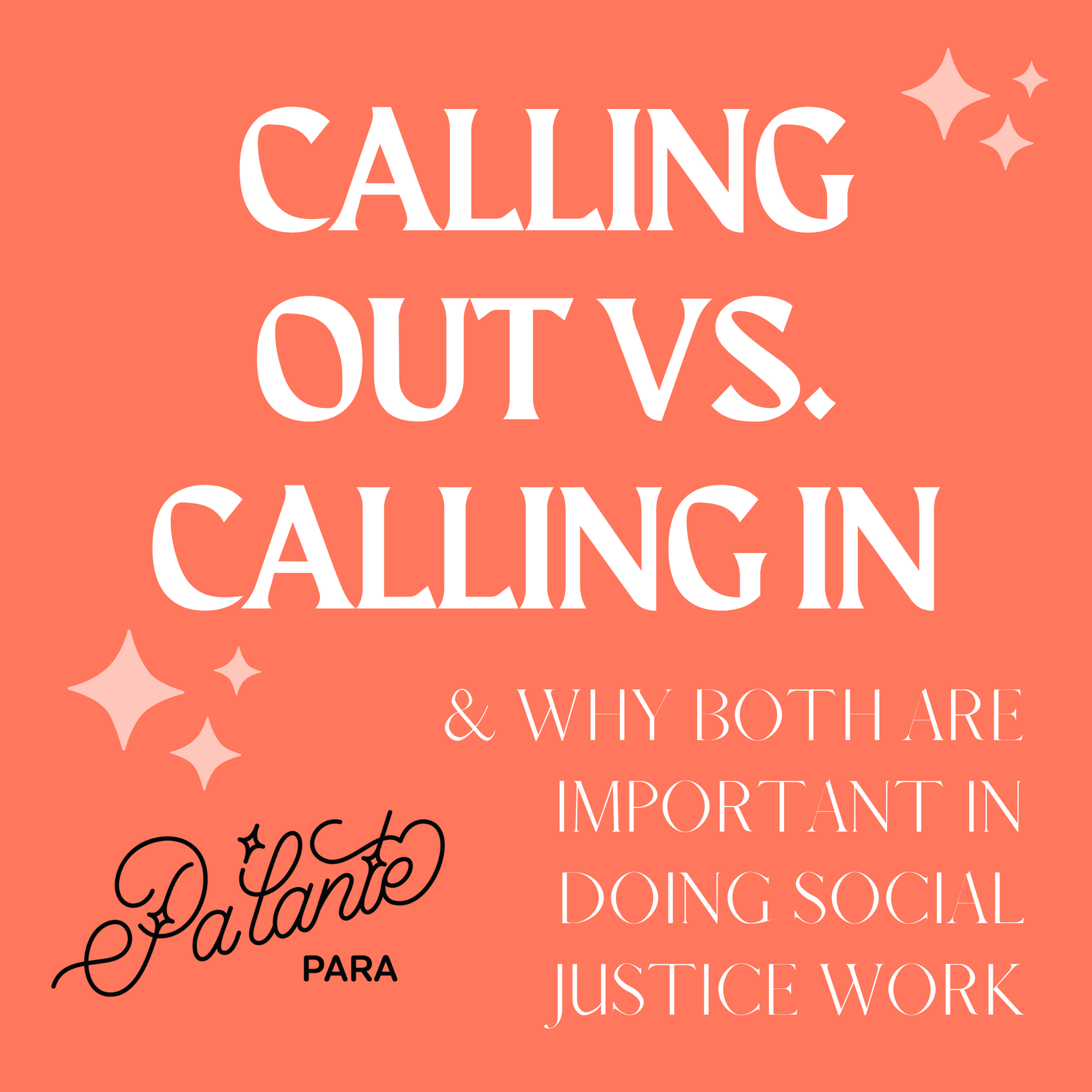Calling Out vs. Calling In: Why Both are Important in Social Justice Work
•Posted on February 18 2021

Calling out...calling in... these buzzwords have been extra prevalent over the last year with calls for social justice reform and action in our communities. Some advocate for one over the other - demanding accountability or advocating for empathy. However, both hold importance in doing social justice and allyship work, all depending on context.

Calling someone (or an institution) out is a public method of letting someone know that something they have done or said is problematic. This can be done over social media, in person, in writing (articles, petitions, open letters) or anything that is a public form. This is a very efficient way to draw quick attention to an issue and stop the problematic behavior in its tracks. It probably won't lead to a healthy discussion, however, the perpetrator will become aware of their actions and that whatever they are doing will not be tolerated.
Calling someone in is a private method of letting someone know that they've done or said something problematic. It is usually approached gently and a conversation is had person-to-person. This is a great method to use with friends and family you know well, or students that you mentor of any age group. Calling someone in requires patience, time, and the physical and mental capacity of both parties to engage. This practice is in line with restorative justice, the idea that an equitable society is built on mediation and education rather than punishment.
Different situations may call for different approaches or conversations. It is important to evaluate before calling in or calling out if you have the capacity to engage in either. Your own mental health should always take center stage, it's okay to recognize when taking action is beyond your energy levels. Protect your energy first, and pick battles you feel are worth your efforts.
Some tips to keep in mind when approaching a tough conversation:
- Use "i" statements - put focus on how you are feeling from the situation.
- Emphasise your own observations and experiences. Making assumptions or accusations never goes well! (& why we avoid "you" statements)
- If you start to feel the conversation getting out of hand, lulling, or otherwise becoming unproductive - it's okay to step away and take a break.



Download a PDF with more examples of practicing calling-out and calling-in. Courtesy of seedtheway.com, Oregon Center for Educational Equity, & School Reform Initiative.

Comments
0 Comments
Leave a Comment